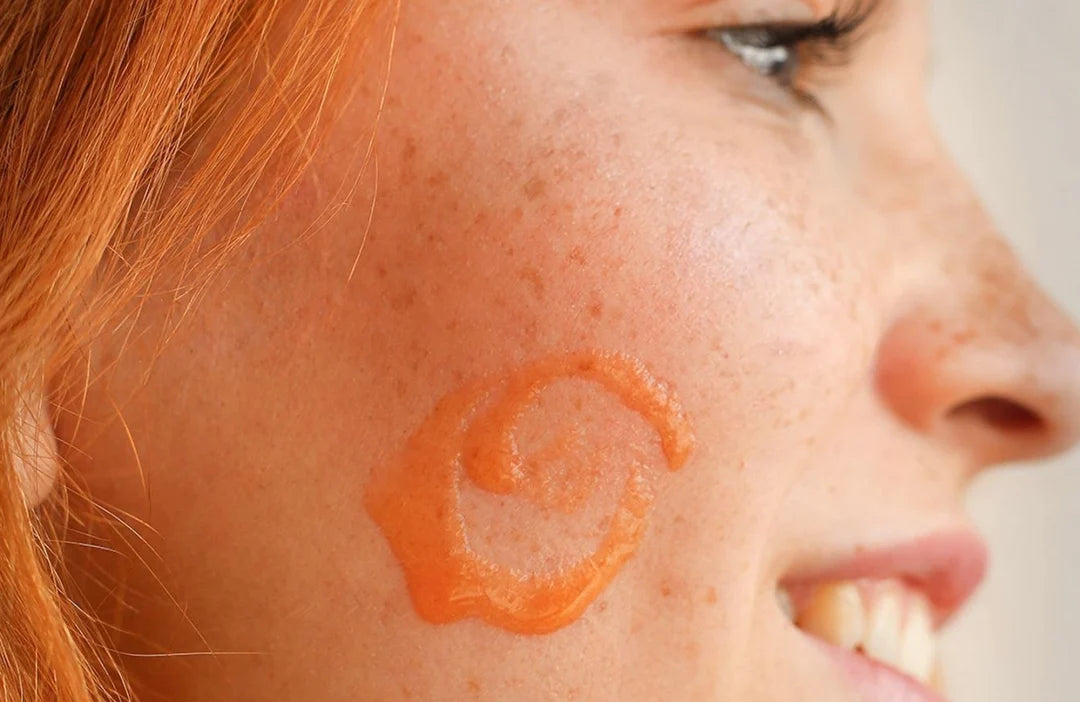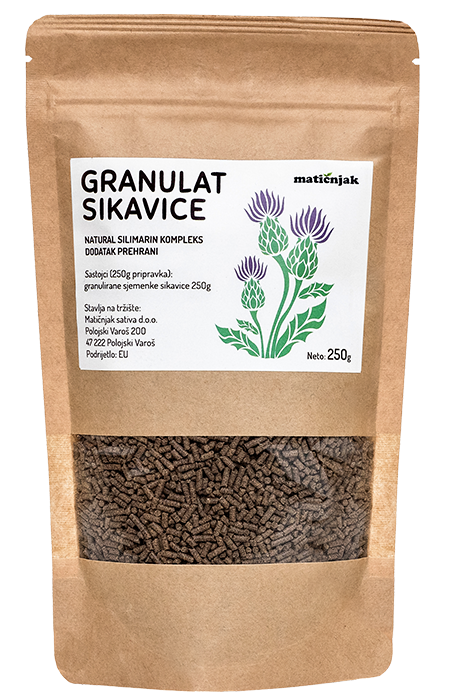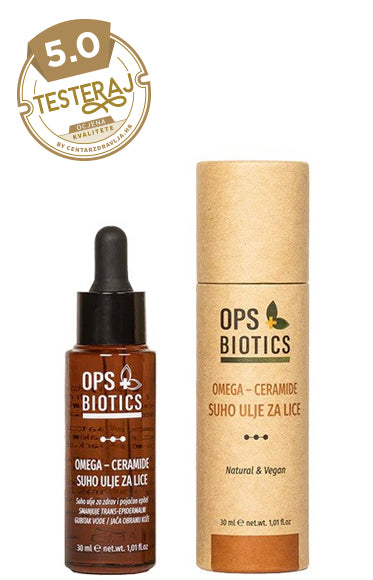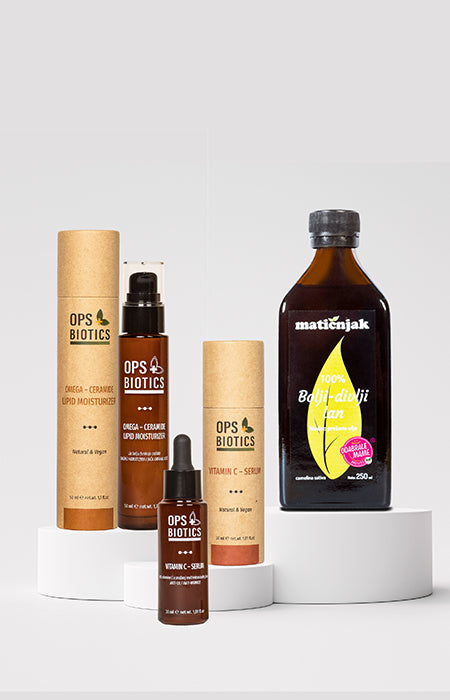Ever since the first colds in childhood, which we treated with tea and lemon juice, we know that vitamin C is good for health. That is why we are not surprised that it is becoming more and more popular in the cosmetics industry, as one of the most important nutrients responsible for the health and beauty of the skin.
( https://www.journal.hr/ljepota/ops-biotics-vitamin-c-serum )

Today, the market is flooded with products that contain vitamin C and without sufficient knowledge it is difficult to choose the right one for your skin. To make it easier for you, we provide answers to the most common questions related to the use of vitamin C in the skincare routine.
What is vitamin C and how does it affect the skin?
Vitamin C is a powerful antioxidant, which means that it protects the skin from damage caused by free radicals and is therefore considered the main protective vitamin for our skin. It is found naturally in the middle and outer layers of the skin, the dermis and epidermis, but the human body cannot produce it on its own, so we have to take it in from the outside.

If it is taken in the correct form and in sufficient quantity, vitamin C penetrates deep into the skin and renews and energizes it, and it becomes clean and radiant. It contributes to hydration, removes acne and sun spots, reduces redness and the appearance of dark spots, and generally brightens and evens out the complexion. In addition, it stimulates the production of collagen, which means that it slows down the appearance of signs of aging and erases fine lines and wrinkles from the face.
Why is vitamin C serum the best choice?
Various fruits and vegetables are an excellent source of vitamin C, but when ingested through food or nutritional supplements, less than 7% reaches the skin, and almost nothing reaches the outer, epidermal layers. This is the reason why vitamin C should be applied directly to the skin.
The good news is that vitamin C is one of the few active substances that, when applied locally, not only affects the epidermis, but also the dermis, so it works in depth.
How to include vitamin C serum in your daily skincare routine?
Because vitamin C is an antioxidant, it's best used as part of your morning routine to work throughout the day and protect skin cells from environmental pollution. It has a reservoir effect, so it is enough to apply it once a day because the effect lasts up to 24 hours. By applying the cream after the serum, you "lock" the skin and thus preserve the effect of the serum.

Is vitamin C aggressive to the skin?
Vitamin C serums usually have a pH value between 3.5 and 4, which means they are acidic. For this reason, they can sometimes cause a slight burning sensation or the appearance of redness. Both are considered normal signs of the active effect of the preparation and should be distinguished from an allergic reaction. On the other hand, if there is no irritation on your face, it does not necessarily mean that the serum is not working, but it is a sign that the skin is in a better condition than the one that reacts.

Myths about vitamin C in skin care
Myth 1: Not a good choice for sensitive skin
Vitamin C can be used on all skin types, it is suitable for every age and every complexion, it is even recommended as the first care that teenagers introduce into their skincare routine. In very rare cases, it can cause an allergic reaction, but even then it is usually a reaction caused by other ingredients of the product. If you are using a serum with vitamin C for the first time, do not immediately apply it to the entire face, but test it on a small area of the skin.
Myth 2: It should not be used in combination with retinol
If vitamin C is used in combination with other active ingredients such as AHA, BHA or retinol, mutual effects can be canceled out, as well as irritation. However, it is completely safe to use if they are not used at the same time. This is an additional reason why vitamin C should be used as part of the daily routine - so that acids or retinol can be used for night care without interruption.
Myth 3: The higher the concentration, the better the effect
The effectiveness of vitamin C depends not only on the concentration, but also on the composition and pH value. The optimal concentration is between 8% and 20%, and it is not recommended to use products with a concentration of vitamin C higher than 20%, as this does not contribute to the effect and can cause skin irritation.

Myth 4: It can cause sun sensitivity
Many acids increase sensitivity to the sun and affect the appearance of hyperpigmentation on the skin. Although vitamin C is an acid in its pure form, its effect is the opposite – as a powerful antioxidant, it can actually protect the skin from damage caused by the sun. However, this does not mean that the use of vitamin C is a sufficient substitute for creams with SPF.
Vitamin C – the serum we trust
OPS BIOTICS+ natural cosmetics is new on the market, and slowly but surely it is finding its way to more and more cosmetic cabinets. One of the line of skin care products is the Vitamin C serum with an innovative ingredient, photostable full-spectrum vitamin C from the rosehip fruit. At a concentration of 10%, with a pH value lower than 4, it offers the most benefits for the skin.

In this reparative serum, pure vitamin C (ascorbic acid) is additionally fortified with other sources and forms of vitamin C, vitamins A, E, B3, B5, F, the mineral MSM, hyaluronic acid and astaxanthin. Such a combination makes it a real anti-aging bomb. It is packaged in a dark brown glass bottle with a medical dropper for dosing. Such packaging reduces exposure to light and limits the reaction with oxygen, thus preserving the stability of vitamin C.
Due to its exceptional photostability, OPS BIOTICS+ Vitamin C serum is recommended to be used in the morning to provide all-day protection and radiance. The serum provides strong antioxidant protection, increases hydration, restores and energizes the skin, brightens the complexion and erases spots caused by acne or the sun. In addition to all that, it smooths out fine wrinkles and lines, and has a positive effect on skin firmness.











